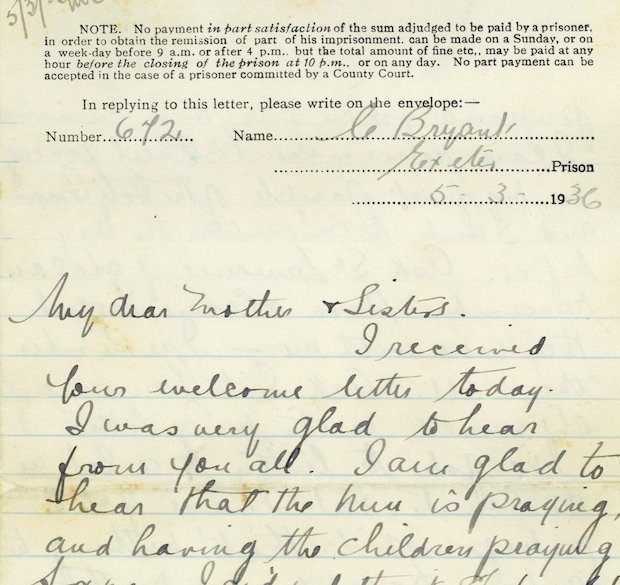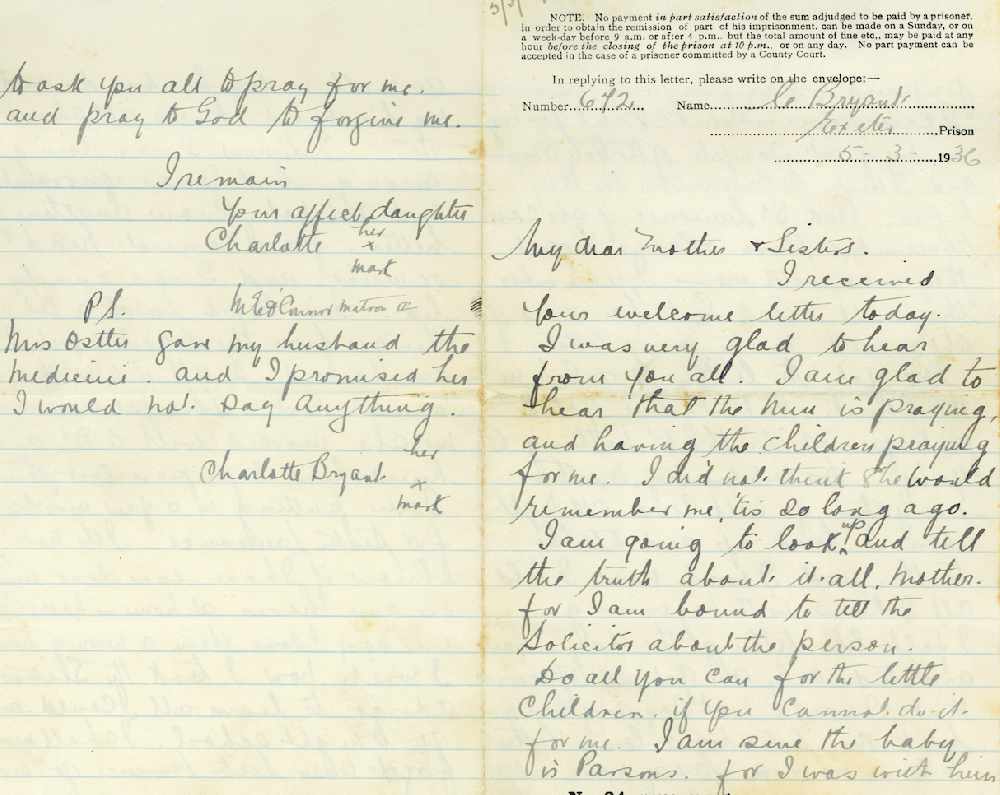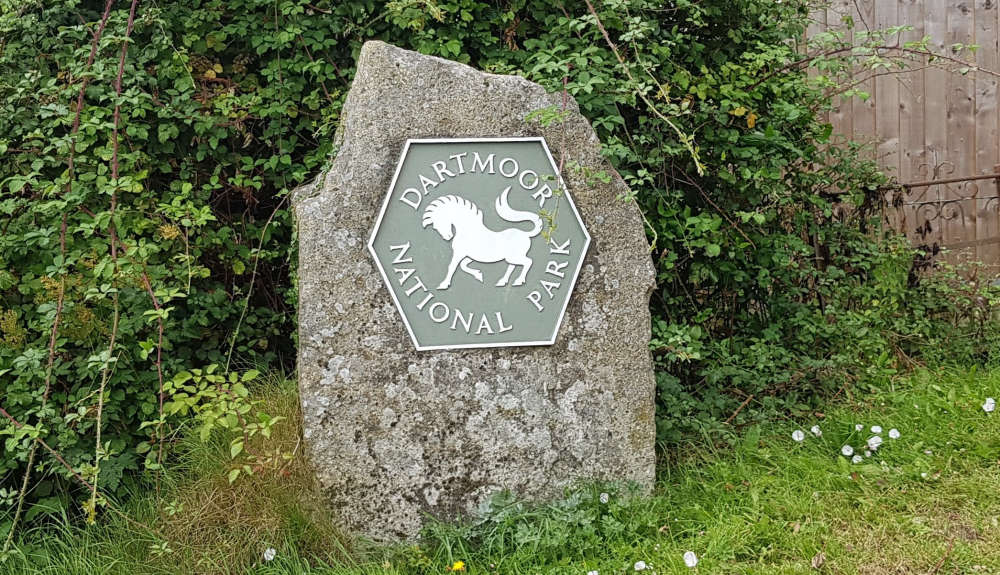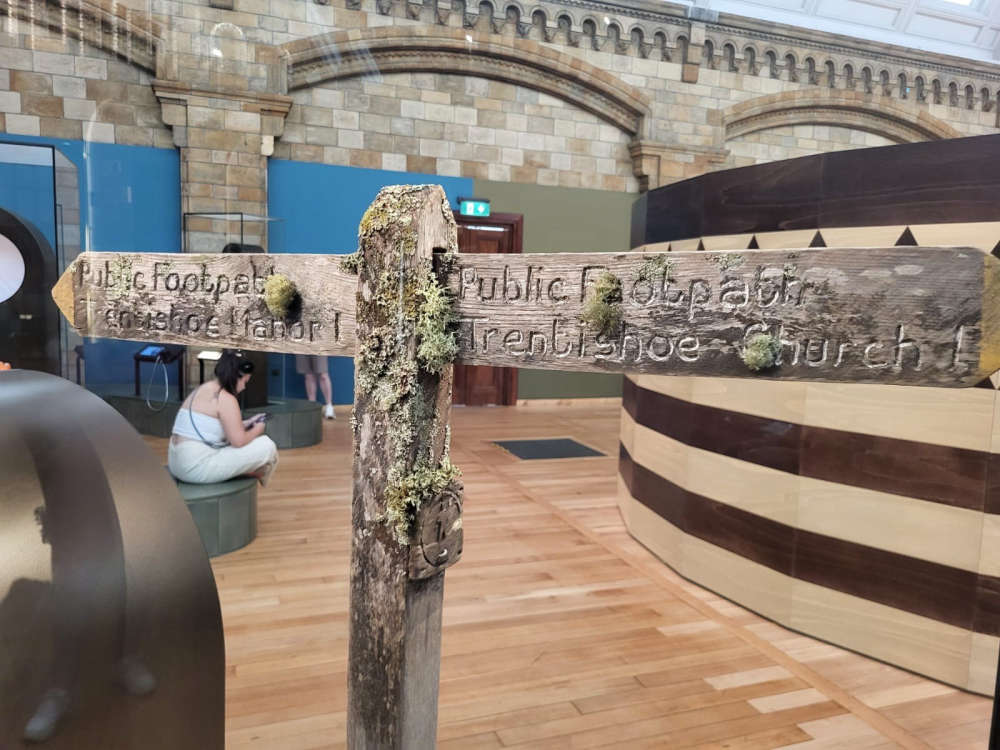
Murderess went to gallows in 1936
A woman hanged at Exeter Prison in 1936 for poisoning her husband is being remember in a new e-book.
After grains of arsenic were found in the body of her farm labourer husband Fred, 33-year-old Charlotte Bryant quickly fell under suspicion. Arrested at her home near Sherborne, the illiterate housewife, known to be somewhat promiscuous, was tried at Dorchester. Illiterate, she reportedly found it hard to follow proceedings - and whilst awaiting her appointment with the hangman, dictated a series of letters to her family.
They're now the subject of the new e-book, 'Freed Soul' which is free to read on the website of the National Justice Museum to mark Women's History Month.
Charlotte Bryant’s arrest and trial created so much of a public frenzy that in a final letter to her mother she describes the “crowds and crowds” of people at her trial making it feel like “being at a fair.”
She spent six weeks at Exeter Prison, double the normal time between passing of a death sentence and execution, as she waited in vain for news of an appeal. When that didn't come she went to the gallows on 15 July 1936, leaving five children aged between one and 12 orphaned.
She spent her last hours receiving Holy Sacraments in the death cell. The Exeter and Plymouth Gazette reported: "During those last moments on earth, this uneducated and illiterate woman, who had never been taught to read or write or spell, recalled the faith which she learned when a child attending the Roman Catholic Sunday School in her native Ireland, and she murmured the responses to the Litanies in a low voice.".
Andrea Hadley-Johnson, artistic programme manager at the National Justice Museum says: “‘Freed Soul’ places Charlotte Bryant’s voice at the forefront of her story, allowing her to make herself known. This poignant correspondence will sit in the heart of an emerging museum capital punishment project. Charlotte’s story is uncomfortable, and it is relevant to now.”
In recent years, a Nottingham human rights lawyer and others have cast doubt on aspects of Charlotte’s prosecution and the case made against her at the time.
National Justice Museum writer in residence Dr Martin Glynn researched six letters Charlotte wrote to her family while imprisoned, awaiting trial. He has creatively imagined correspondence between himself and Charlotte to highlight her thoughts and feelings in the intolerable circumstances she faced.
“This writer in residence commission is an opportunity to an opportunity to interrogate our archive of letters and amplify a voice and an experience,” says Andrea Hadley-Johnson.
Dr Glynn’s imagined letters sit alongside Charlotte’s original letters in the new e-book. The final public letter Charlotte wrote to her family before her death sentence will also be on display in the museum’s Victorian courtroom when the museum reopens after lockdown.

 Devon MP’s victory over ‘unfair’ GP funding
Devon MP’s victory over ‘unfair’ GP funding
 Public donations to boost Dartmoor's accessibility
Public donations to boost Dartmoor's accessibility
 Theatre launches Crowdfunder to support talent
Theatre launches Crowdfunder to support talent
 Exmouth shops forced to close after tobacco raids
Exmouth shops forced to close after tobacco raids
 National park gives museum the finger-post
National park gives museum the finger-post
 Duran Duran, Chic and Basement Jaxx set for Powderham Gig
Duran Duran, Chic and Basement Jaxx set for Powderham Gig
